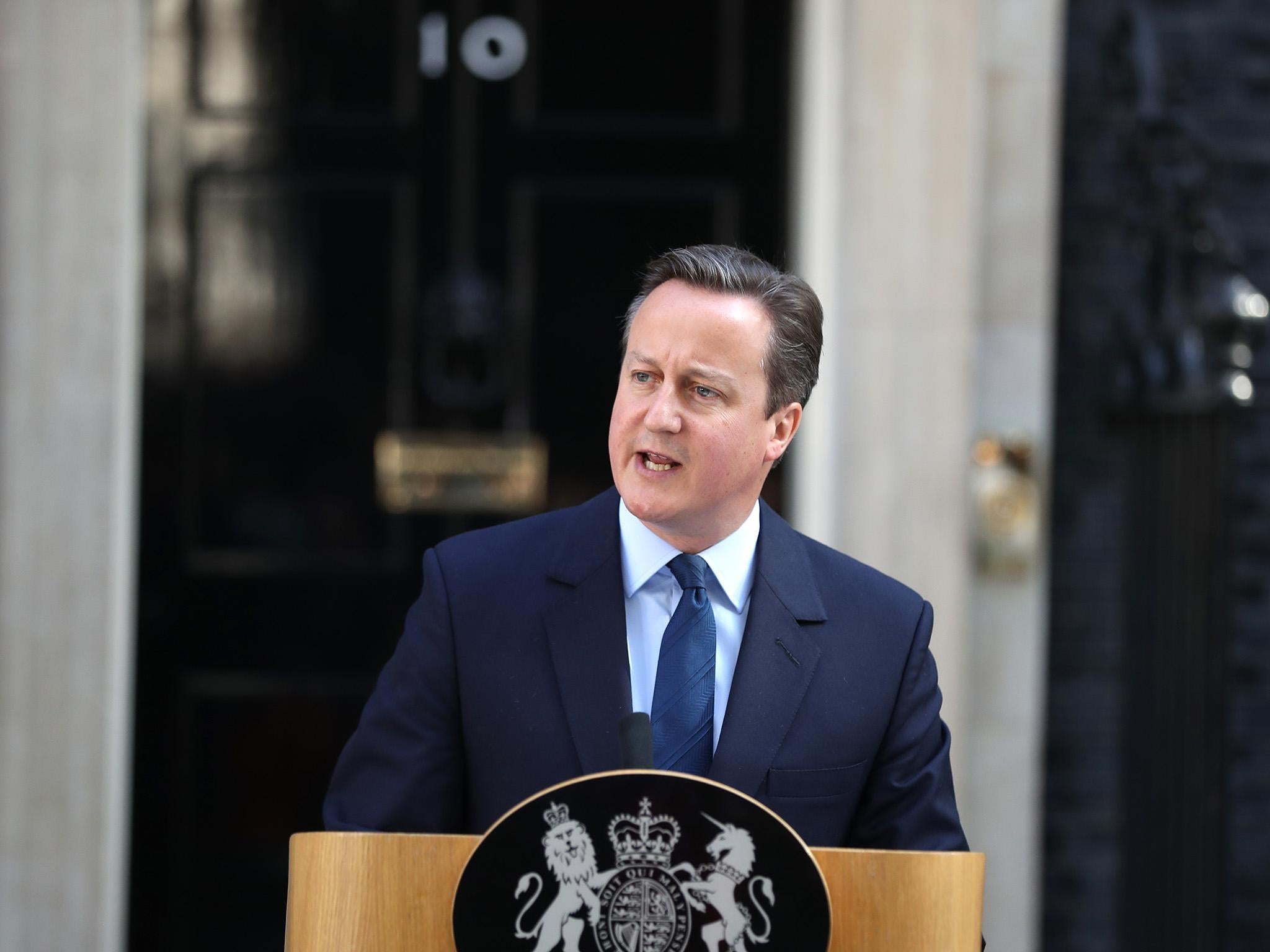In full: The letter from 1,000 lawyers to David Cameron over EU Referendum
'We believe that in order to trigger Article 50, there must first be primary legislation'

More than 1,000 lawyers have signed a letter addressed to Prime Minister David Cameron saying the EU referendum result is merely “advisory” and not legally binding. Here it is in full:
TO THE PRIME MINISTER AND ALL MEMBERS OF PARLIAMENT
9 July 2016
Dear Prime Minister and Members of Parliament
Re: Brexit
We are all individual members of the Bars of England and Wales, Scotland and Northern Ireland. We are writing to propose a way forward which reconciles the legal, constitutional and political issues which arise following the Brexit referendum.
The result of the referendum must be acknowledged. Our legal opinion is that the referendum is advisory.
The European Referendum Act does not make it legally binding. We believe that in order to trigger Article 50, there must first be primary legislation. It is of the utmost importance that the legislative process is informed by an objective understanding as to the benefits, costs and risks of triggering Article 50.
The reasons for this include the following: There is evidence that the referendum result was influenced by misrepresentations of fact and promises that could not be delivered.
Since the result was only narrowly in favour of Brexit, it cannot be discounted that the misrepresentations and promises were a decisive or contributory factor in the result.
The parliamentary vote must not be similarly affected. The referendum did not set a threshold necessary to leave the EU, commonly adopted in polls of national importance, e.g. 60% of those voting or 40% of the electorate.
This is presumably because the result was only advisory. The outcome of the exit process will affect a generation of people who were not old enough to vote in the referendum.
The positions of Scotland, Northern Ireland and Gibraltar require special consideration, since their populations did not vote to leave the EU.
The referendum did not concern the negotiating position of the UK following the triggering of Article 50, nor the possibility that no agreement could be reached within the stipulated two year period for negotiation, nor the emerging reality that the Article 50 negotiations will concern only the manner of exit from the EU and not future economic relationships.
All of these matters need to be fully explored and understood prior to the Parliamentary vote. The Parliamentary vote should take place with a greater understanding as to the economic consequences of Brexit, as businesses and investors in the UK start to react to the outcome of the referendum.

For all of these reasons, it is proposed that the Government establishes, as a matter of urgency, a Royal Commission or an equivalent independent body to receive evidence and report, within a short, fixed timescale, on the benefits, costs and risks of triggering Article 50 to the UK as a whole, and to all of its constituent populations.
The Parliamentary vote should not take place until the Commission has reported. In view of the extremely serious constitutional, economic and legal importance of the vote either way, we believe that there should be a free vote in Parliament.
Yours sincerely
PHILIP KOLVIN QC
And 1053 others
Join our commenting forum
Join thought-provoking conversations, follow other Independent readers and see their replies
Comments